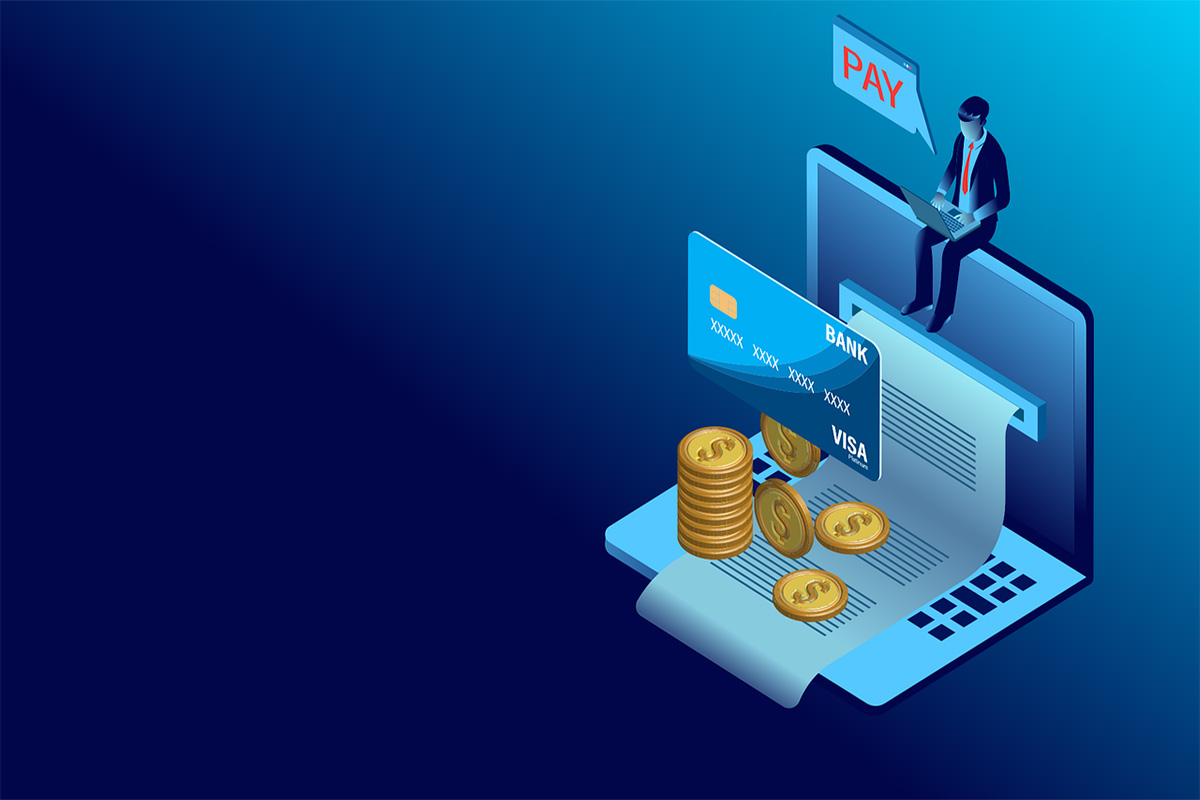The modern fintech world requires companies to constantly adapt to shifts and regulations. When it comes to online pay, businesses may face difficulties. That is the reason why the companies choose payment orchestration, which has gained momentum recently.
By uniting pays into a single system, companies can improve transaction routing, reduce fraud, and make the customer experience better. This strategy results in fewer risks and more revenue.

What is payment orchestration?
A Payment Orchestration Platform is also known as a Payment Orchestration Layer. This payment software brings together various pay methods into one centralized payment orchestration system. With its help, merchants, payment service providers, and acquirers are able to manage and customize their pay flow and meet their business needs. This cutting-edge service leverages data analytics and machine learning to intelligently route transactions to the best provider. Through intelligent pay routing, cascading, anti-fraud, and other advanced technologies, payments orchestration significantly improves transaction approval rates and reduces chargebacks.
How does payments orchestration work?
The payment orchestration platform is connected to various providers, acquirers, and pay methods via open application programming interfaces. It creates a vast network capable of handling diverse pay scenarios. This allows for the seamless flow of transactions and flexibility.
The orchestration process takes several key steps:
- The merchant integrates the preferred payment orchestration platform.
- The vendor of the payment orchestration layer customizes it to meet a merchant’s individual needs. This includes establishing anti-fraud protocols, configuring transaction flows, and defining intelligent routing criteria.
- When the platform is ready to launch, the merchant can start accepting pays.
- When a customer selects goods and services on the merchant’s website, they proceed to checkout.
- At the checkout stage, they choose a preferred pay method. In turn, the orchestration platform receives the transaction request.
- Then, the platform immediately subjects the transaction to rigorous anti-fraud checks.
- Using specified rules and real-time data, the platform selects the best provider for the transaction. It depends on the transaction amount, currency, provider performance, and historical data.
- After that, the chosen provider processes the transaction.
- The orchestration platform receives a response from the provider. If a transaction fails due to the provider’s internal issues, it is automatically sent for processing to another one. A successful result is achieved within one pay, guaranteeing maximum success rates.
Payment orchestration vs. traditional payment processing
Payment orchestration and payment processing are two different concepts. However, they are often mistakenly confused. Both have separate purposes and functionality, so let’s analyze each of them next.
To start with, payment processing is a crucial part of any transaction process. It includes authorization, clearing, and settlement of the pay. Still, this approach is limited as it involves using only one payment service provider (PSP). If the chosen PSP experiences downtime or lacks certain pay methods, it results in lost sales.
Payment orchestration’s goal is to manage and optimize different pay methods, providers, and channels. Simply put, payment orchestration helps businesses offer a wider range of pay choices to their clients.
The main distinction between the two concepts is flexibility. Payment orchestration dynamically routes transactions based on transaction volume, currency, location, provider performance, etc. With traditional payment processing, you can’t achieve such control. Furthermore, payment orchestration combines additional capabilities like fraud detection, chargeback management, and reconciliation. In such a way, it provides businesses with a full-fledged pay solution.
Which businesses benefit from payment orchestration?
Diverse kinds of businesses can leverage payment orchestration to drive growth and efficiency. They include:
Merchants
Merchants across various industries, starting from e-commerce and ending with retail, benefit from optimized payment processing, reduced costs, and improved customer experiences. By centralizing management, merchants can focus on core business activities while ensuring seamless transactions.
Payment service providers
Through payment orchestration, PSPsexpand their market reach and improve their service offerings. By integrating with multiple PSPs, businesses offer more pay options to their customers and increase their transaction volume.
Financial institutions
By implementing payment orchestration, banks and other financial institutions can streamline pay operations, reduce costs, and improve risk management. This enables them to offer innovative pay solutions, enhance customer experience, and strengthen their competitive position.
Types of payment orchestrators
Payment orchestrators can be broadly categorized into two main types:
Fintech-oriented orchestrators
These platforms primarily cater to fintech companies and financial institutions. They enable financial organizations to configure anti-fraud rules and calculate transaction coverage and payment provider fees. They also manage reasons for declines, their translation, and how they are shown to the client. They offer various integration types for merchants with different levels of technical expertise, as well as branding (logos and domains of the client).
While fintech-oriented orchestrators offer services to PSPs and financial institutions, they can also provide solutions to merchants. Akurateco stands out as an example of a fintech-oriented orchestrator, renowned for delivering tailored payment software for PSPs, banks, and merchants across various business verticals.
Merchant-oriented orchestrators
These platforms are designed specifically for merchants. They are focused on user experience, ease of use, and integration with e-commerce platforms. Merchant-oriented orchestrators can route and cascade integration to payment providers at the customer’s request. They can also unify the customer journey through checkout integration with other participants of the pay flow using anti-fraud providers for chargeback reduction.
Advantages of payment orchestration
By centralizing the management of multiple PSPs, it offers numerous benefits, including:
Expanded options
One of the most notable benefits of payment orchestration is the rapid and easy connection of numerous pay methods and acquirers. This flexibility allows businesses to respond to changing consumer preferences and expand to new markets.
Fast implementation
Merchants don’t need to develop a system from scratch or integrate each PSP on a separate platform. Using payment orchestration, they can start accepting pays through a cutting-edge platform. The advantage is that everything is handled under one roof and in less than a week.
Increased conversion
Payment orchestration adopts a multi-acquirer approach. It integrates multiple acquirers and providers on one platform. Payment orchestration’s sophisticated routing algorithms are critical to improving transaction approval rates. Businesses can increase their chances of successful authorization by evaluating transaction data and selecting the best pay route for each transaction.
Reduced processing costs
Payment orchestration technologies optimize processing costs by choosing a provider with the lowest processing fee for each transaction. For businesses operating in multiple regions, these technologies can route transactions to the most cost-efficient provider in each area. Thereby, it can reduce processing fees and increase profits.
Boosted fraud prevention and security
Regulatory compliance and secure financial transactions are vital to a successful online business. Equipped with advanced fraud prevention features like tokenization, encryption, and real-time risk assessment, the modern payments orchestration platform helps businesses meet legal and industry standards.
Improved customer experience
Eventually, the purpose of payment orchestration is to increase consumer loyalty and encourage repeat business. By expanding the pay alternatives and delivering a seamless checkout procedure, it eliminates losses and enhances the overall experience.
What to consider when choosing the payment orchestrator?
If you are looking to improve your overall performance and optimize your pays, then the best payment orchestration provider is essential. Take into account these crucial elements to make an informed choice:
Security
First, prioritize platforms with Level 1 PCI DSS compliance to adhere to stringent security standards. Also, pay attention to embedded security measures. This features encryption, tokenization, and customizable anti-fraud rules to safeguard sensitive customer data.
Provider coverage
Evaluate the platform’s capability to accept various pay methods. They should include credit cards, debit cards, digital wallets, and alternative pay methods (APMs). Consider platforms that provide access to a vast network of acquirers and providers to serve global customers.
Scalability
Ensure the payments orchestration layer addresses instabilities in transaction volume and supports business growth. It shouldn’t damage your performance. Evaluate the platform’s track record for transaction processing speed, error rates, and uptime. Furthermore, look for platforms that propose vast performance metrics and analytics to improve pay flows and identify possible risks.
Customization
Select a platform that offers options for customization to meet your business’s specific requirements, branding, and preferences. Search for platforms with robust API capabilities to integrate with your existing systems and applications.
Customer support
Finally, consider the platform provider’s customer support services, including availability, responsiveness, and expertise. The level of help during the platform implementation process also plays an important role. It should incorporate training and onboarding. Estimate the platform provider’s dedication to ongoing support and updates for better performance.
What to expect next?
As data privacy regulations and financial laws have become increasingly strict, the demand for secure and transparent payment orchestration platforms has also risen. Today’s companies prioritize compliance to navigate the complex financial landscape. According to Grand View Research, the global payment orchestration market size is expected to extend at a compound annual growth rate (CAGR) of 24.7% from 2024 to 2030. This is explained by the rising dependence of the retail and e-commerce sectors on efficient pays. In addition, market players are focusing on enhanced fraud protection and pay arrangement services. As companies adapt to changing consumer behavior and trends, there is a need for customized platforms. They will drive the adoption of payment orchestration platforms.
FAQs
What is a payment orchestration platform?
The payment orchestration platform is a comprehensive solution that streamlines and optimizes pays. By integrating multiple pays, providers, and channels into a unified platform, it helps businesses manage their finance ecosystem more effectively.
How does payment orchestration differ from a payment service provider (PSP)?
A payment service provider is a third-party company that allows businesses to accept online transactions. Payment orchestration manages multiple PSPs by optimizing transactions. They are based on cost, acceptance rates, and fraud risk. PSPs handle specific pay functions, while orchestration offers a broader view and control.
What types of businesses need payment orchestration?
Businesses that accept various pay methods or operate in multiple regions often benefit from payment orchestration. This refers to merchants, payment service providers, e-commerce platforms, marketplaces, subscription services, fintech companies, etc.
What are the key advantages of payment orchestration?
Payment orchestration offers numerous advantages. This includes increased transaction approval rates, improved customer satisfaction, and reduced operational costs. It also offers you extended pay methods, fraud prevention, accelerated time-to-market, and valuable pay data.









